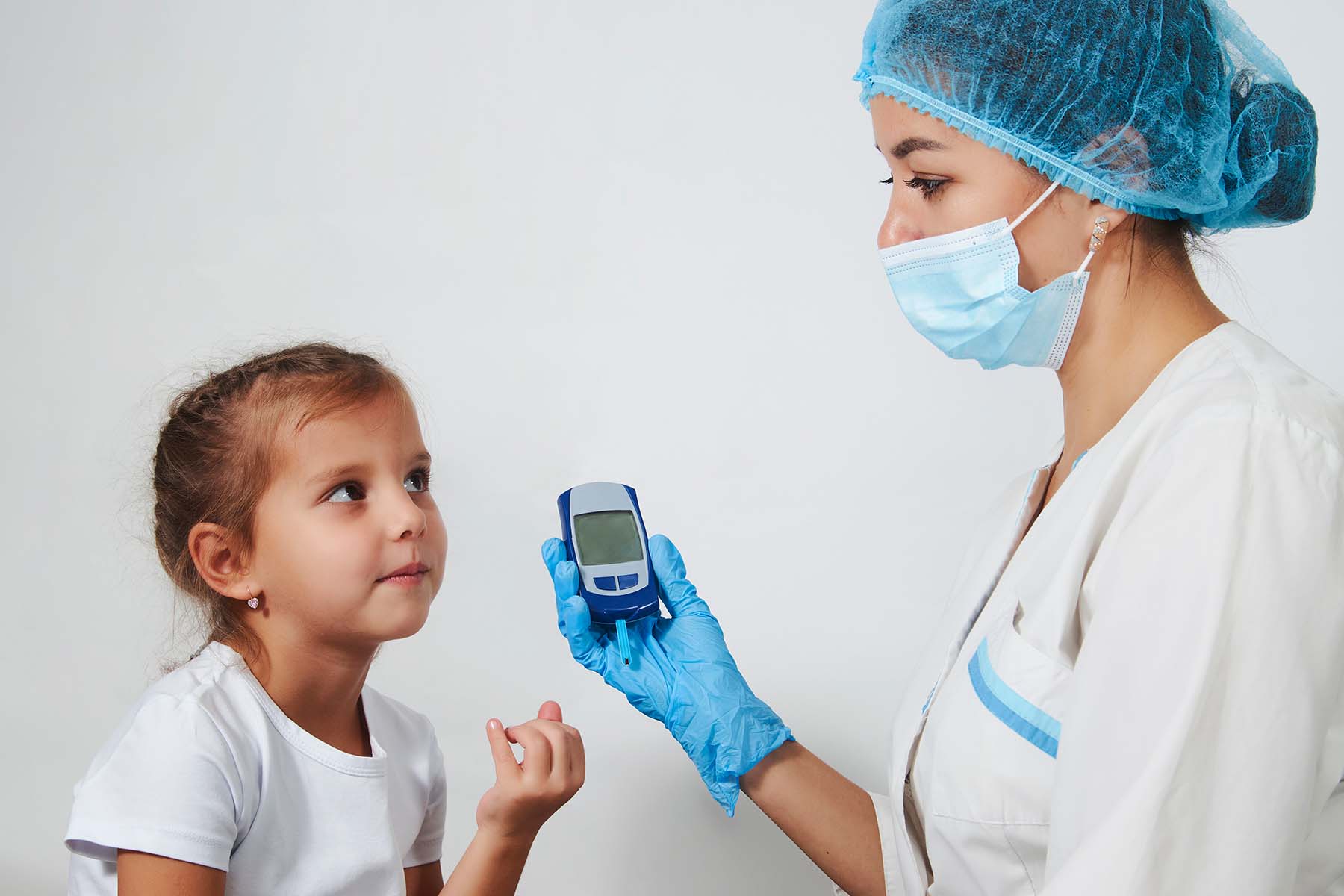Is There a Connection Between COVID and Diabetes?

Type 1 diabetes (T1D) is an autoimmune disorder in which the body’s pancreas stops producing insulin, which can lead to uncontrolled blood sugar levels and several related symptoms. While it’s not as common as type 2 diabetes, T1D impacts 1.45 million Americans, with 64,000 new diagnoses each year, according to the JDRF.
While type 2 diabetes can be related to lifestyle factors such as diet or obesity, T1D is not. T1D is related to genetic factors, and research in recent decades has shown how environmental factors such as exposure to viruses may contribute to the development of T1D.
In 2021, research for the journal Frontiers in Endocrinology examined the results of 38 studies with 5,921 subjects on the topic of T1D risk and enterovirus infection. (Most enteroviruses cause common cold symptoms.)
Their conclusion was that enterovirus infection may be associated with an increased risk of developing T1D.
Researchers have recently detected another virus that seems to have a tie to increased T1D risk in children: COVID-19 virus.
Of the many outcomes of the COVID-19 pandemic, some studies have shown that children who had COVID-19 have a higher risk for type 1 diabetes.
One study from the University of California saw a 57% increase in children being diagnosed with T1D from March 2020 to March 2021 compared to data from previous years. This data was based on hospital admissions. This matches additional data from the Centers for Disease Control and Prevention (CDC), which found a 31% to 166% increase in T1D diagnoses in children 30 days after a COVID-19 infection. Studies from countries such as Germany, Finland, and Norway had similar findings.
Janine Sanchez, M.D., director of pediatric diabetes for the University of Miami Health System, has been closely monitoring the research related to COVID-19 and T1D development in children.
She says that the data connecting enterovirus with an increased risk of type 1 diabetes is strong.
When it comes to COVID-19, however, some of the research has been conflicting. She says that more research is needed to determine if COVID-19 is truly leading to an increase in T1D, or if other factors are at play.
“Some children are always at a greater risk of type 1 diabetes due to genetic markers,” says Dr. Sanchez. “Whether COVID-19 acts specifically to cause the disease to develop, we don’t know the answer yet. Typically, people with genetic triggers for T1D don’t develop diabetes immediately after exposure to a viral trigger, so it’s unlikely that COVID infection would immediately lead to type 1 diabetes.”
Dr. Sanchez says that the connection may have some validity, and we may see a spike in T1D in years to come. T1D was already increasing among children in some populations prior to the COVID pandemic. During the pandemic, there also may have been a decrease in vitamin D intake (less sunlight exposure), which could contribute to T1D development.
The bottom line, says Dr. Sanchez, is that we don’t know enough to directly tie COVID-19 infection to type 1 diabetes at this point.
Even so, parents can be vigilant in looking for the signs and symptoms of T1D to keep their children safe.
“The best advice here is to keep your kids as healthy as possible and avoid being around people who are sick,” she says. “Watch out for diabetes symptoms such as frequent urination, increased thirst, new onset blurry vision, unexpected weight loss, stomach pain or change in mood.”
Wyatt Myers is a contributor for UHealth’s news service.
Tags: covid-19 in Miami, Diabetes care in Miami, diabetes in kids, Dr. Janine Sanchez, long covid, pediatric diabetes
